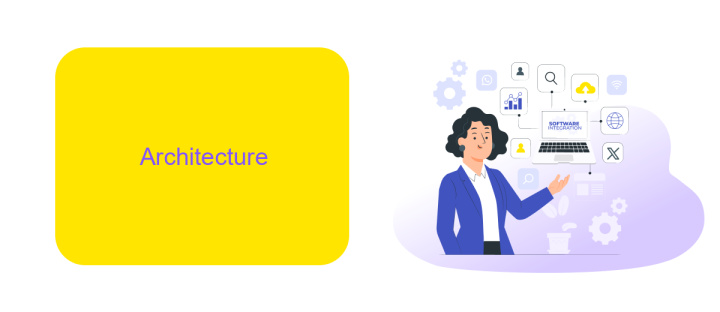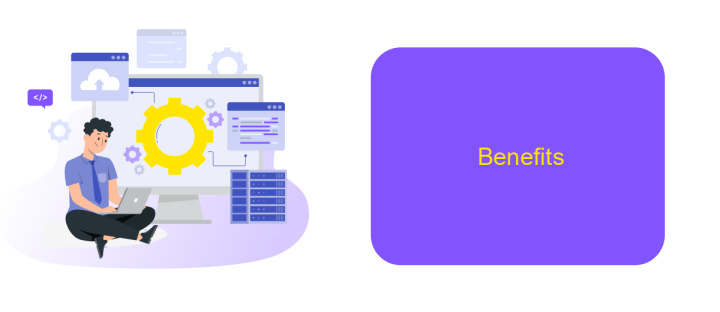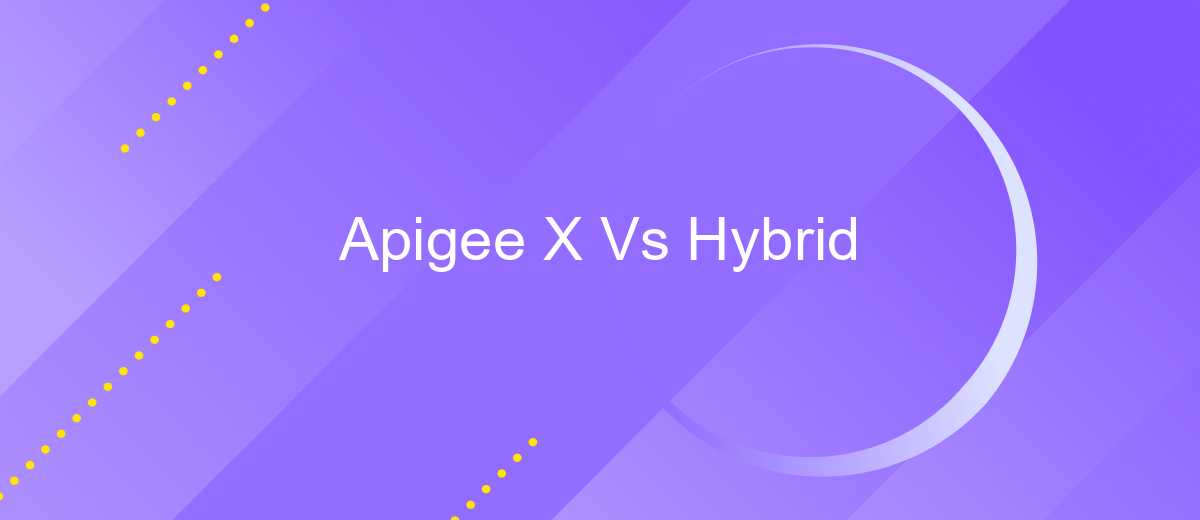Apigee X Vs Hybrid
In the evolving landscape of API management, choosing the right platform is crucial for businesses aiming to streamline operations and enhance digital experiences. This article delves into a comparative analysis of Apigee X and Apigee Hybrid, two powerful solutions from Google Cloud. By examining their features, deployment models, and use cases, we aim to guide you in selecting the optimal API management tool for your enterprise needs.
Introduction
In today's rapidly evolving digital landscape, businesses are increasingly relying on API management solutions to streamline their operations and enhance connectivity. Apigee X and Apigee Hybrid are two prominent offerings from Google Cloud that cater to different organizational needs. Both solutions aim to provide robust API management capabilities but differ in deployment models and specific use cases.
- Apigee X: A fully managed service that runs on Google Cloud, offering seamless integration and advanced features.
- Apigee Hybrid: Combines on-premises and cloud capabilities, providing flexibility and control over API deployments.
Choosing between Apigee X and Apigee Hybrid depends on various factors such as deployment preferences, security requirements, and scalability needs. For organizations looking to integrate multiple services effortlessly, tools like ApiX-Drive can be invaluable. ApiX-Drive simplifies the integration process, allowing businesses to connect their APIs and automate workflows efficiently. Understanding the strengths and limitations of each option will help you make an informed decision that aligns with your business objectives.
Architecture

Apigee X and Apigee Hybrid offer distinct architectural approaches to API management. Apigee X is a fully managed service running on Google Cloud, leveraging the robust infrastructure and advanced capabilities of Google Cloud Platform (GCP). It provides seamless scalability, high availability, and integrated security features, making it ideal for enterprises looking for a hands-off, cloud-native solution. The architecture of Apigee X includes components such as the API Gateway, management plane, and analytics, all hosted on GCP, ensuring optimal performance and minimal operational overhead.
On the other hand, Apigee Hybrid allows organizations to host the API runtime on-premises or in a private cloud while utilizing the Apigee management plane in the cloud. This hybrid approach provides greater control over data residency and compliance, catering to industries with stringent regulatory requirements. The architecture of Apigee Hybrid includes the runtime plane, which can be deployed in any environment, and the management plane, which remains in the cloud. For seamless integration and automation of API workflows, services like ApiX-Drive can be utilized to connect various applications and streamline data flows across the hybrid infrastructure.
Features

Apigee X and Apigee Hybrid offer robust features for managing APIs, but each has its unique strengths. Apigee X is a fully managed service on Google Cloud, providing advanced security, analytics, and developer portals. Apigee Hybrid, on the other hand, allows for on-premises deployment, offering more control over data and compliance.
- Deployment Flexibility: Apigee Hybrid supports both cloud and on-premises deployments, while Apigee X is cloud-native.
- Security: Apigee X leverages Google Cloud's security infrastructure, whereas Apigee Hybrid provides customizable security options.
- Analytics: Both platforms offer detailed analytics, but Apigee X integrates seamlessly with Google Cloud's analytics tools.
- Developer Portals: Apigee X includes built-in developer portal capabilities, while Hybrid offers customizable solutions.
- Integration Capabilities: Both platforms can be enhanced with third-party services like ApiX-Drive for seamless integration management.
Choosing between Apigee X and Apigee Hybrid depends on your specific needs for deployment, security, and integration. While Apigee X provides a fully managed cloud solution, Apigee Hybrid offers flexibility for those requiring on-premises control. Utilizing services like ApiX-Drive can further streamline your integration processes, regardless of the platform you choose.
Benefits

Choosing between Apigee X and Apigee Hybrid can significantly impact your API management strategy. Both solutions offer distinct advantages tailored to different organizational needs, providing flexibility and robust performance.
Apigee X is a fully managed service that leverages Google Cloud’s global network, ensuring high availability and low latency. It is ideal for organizations looking for a hassle-free, scalable solution. On the other hand, Apigee Hybrid gives you the flexibility to deploy API management capabilities on-premises, in the cloud, or in a hybrid environment, catering to specific compliance and data residency requirements.
- Scalability: Apigee X offers seamless scalability with Google Cloud’s infrastructure.
- Flexibility: Apigee Hybrid allows for customized deployment strategies.
- Security: Both solutions provide robust security features, but Hybrid allows for more control over data.
- Integration: Both platforms can be integrated with services like ApiX-Drive for streamlined API management and automation.
Ultimately, the choice between Apigee X and Hybrid depends on your organization’s specific needs, including compliance requirements, deployment preferences, and scalability goals. Both options offer powerful tools to enhance your API management capabilities.
Considerations
When choosing between Apigee X and Apigee Hybrid, it's essential to consider your organization's specific needs and infrastructure. Apigee X, being a cloud-native solution, offers seamless scalability and reduced maintenance efforts, making it an ideal choice for businesses looking to leverage Google's robust cloud infrastructure. On the other hand, Apigee Hybrid provides more control over data residency and regulatory compliance, allowing you to deploy the management plane in the cloud while keeping the runtime plane on-premises or in a private cloud.
Integration capabilities are another crucial factor. Apigee X integrates smoothly with other Google Cloud services, enhancing your ability to create a cohesive ecosystem. For those requiring extensive integration with various third-party services, tools like ApiX-Drive can be invaluable. ApiX-Drive simplifies the process of connecting Apigee with numerous applications, ensuring streamlined workflows and data synchronization. Evaluating these aspects will help you determine which Apigee solution aligns best with your operational goals and compliance requirements.


FAQ
What is the main difference between Apigee X and Apigee Hybrid?
Can I use Apigee Hybrid if I have strict data residency requirements?
What are the benefits of using Apigee X over Apigee Hybrid?
Is it possible to migrate from Apigee Hybrid to Apigee X?
How can I automate the integration process between Apigee and other services?
Time is the most valuable resource in today's business realities. By eliminating the routine from work processes, you will get more opportunities to implement the most daring plans and ideas. Choose – you can continue to waste time, money and nerves on inefficient solutions, or you can use ApiX-Drive, automating work processes and achieving results with minimal investment of money, effort and human resources.

